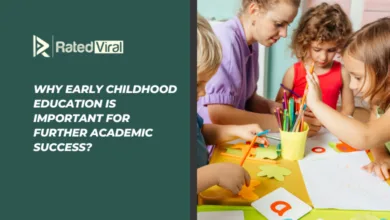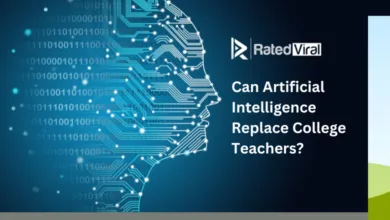Why Diversification Is Important for Successful Learning
Diversification in education is a new trend that aims to create a more well-rounded learning experience for individuals. It should broaden learners’ skill sets, foster resilience, and strengthen decision-making. These lessons contribute to personal and professional growth, making individuals more adaptable, innovative, and effective in addressing the complex challenges of our modern world. Let: ‘s dive into why Diversification Is Important for Successful Learning.
Preventing Mental Stagnation
Diversification prevents mental stagnation by keeping the mind engaged and curious. We risk becoming mentally complacent and uninterested when we limit our learning to a narrow field or set of subjects. By exploring different topics and approaches, we stimulate our intellect and maintain a sense of wonder and enthusiasm for learning. Overall, such an approach allows individuals to pursue their interests and passions, leading to a more fulfilling learning process and meaningful life.
Cultivating Creativity:
Diversification stimulates creativity by exposing individuals to a variety of perspectives and ideas. Creative solutions often emerge from combining knowledge and experiences from different domains. The more diverse one’s learning, the more creative and innovative one’s thinking can become. However, in case creativity still comes as a challenge, seek SpeedyPaper help writing online to meet fast-approaching deadlines.
Reducing the Risk of Going Obsolete:
Specializing in a single area of knowledge can be risky, as changes in that field may leave an individual with obsolete skills. Diversification mitigates this risk. By learning across multiple areas, one is less vulnerable to economic or professional downturns in any single field.
Plus, students develop a capacity for learning more efficiently and effectively. They become better and faster at grasping complex concepts, making connections, and retaining information.
Enhancing Problem-Solving Skills:
Diversification provides a rich toolkit for problem-solving across different domains. This diversity exposes individuals to various methodologies and approaches. For example, by engaging with both scientific and creative subjects, individuals have more choices in finding the most suitable problem-solving method for a given situation. They learn to draw from different domains, adapting strategies and techniques to solve unique challenges.
Moreover, diversification fosters the ability to see problems from multiple perspectives. It encourages a holistic view of issues, as concepts from different areas may provide valuable insights. This multi-perspective problem-solving can lead to innovative and unconventional solutions.
Communication:
Research skills are essential for gathering and evaluating information. Diversification often involves researching different topics, making individuals proficient in data gathering and analysis. Exposure to various subjects encourages critical thinking and the ability to analyze, evaluate, and synthesize information. This skill is invaluable in making sound decisions and solving complex problems.
Research:
Research skills are essential for gathering and evaluating information. Diversification often involves researching different topics, making individuals proficient in data gathering and analysis. Exposure to various subjects encourages critical thinking and the ability to analyze, evaluate, and synthesize information. This skill is invaluable in making sound decisions and solving complex problems.
Adaptability:
Learning across different subjects fosters adaptability as individuals become accustomed to transitioning between various topics and methodologies. Transferable skills empower individuals to excel in different job roles and adapt to changing career opportunities, making them highly marketable and valuable assets in the workforce. This adaptability is a valuable asset in a rapidly changing job market.
Time Management:
Juggling multiple subjects and responsibilities requires effective time management. Diversification naturally promotes the development of time management skills, which are crucial in both academic and professional settings. Delegating and prioritizing also become a big part of the learning experience. That’s why you may find it useful to read an article at websta.me/pay-someone-to-write-an-essay/ to see how you can combine all your versatile education interests.
Cultivating Resilience:
Diversification in learning contributes to personal and professional resilience. It prepares individuals to adapt to rapidly changing situations, enabling them to make quick and effective decisions in dynamic environments. These learning experiences also encourage students to embrace failure as a learning opportunity.
When encountering challenges or difficulties in various subjects, they develop the resilience to persevere, adapt, and succeed. As a result, such students are better prepared to face setbacks, challenges, and uncertainties with confidence.
Versatility:
Learning across different domains equips individuals with various skills and knowledge. This versatility makes them less reliant on a single path or profession, reducing the impact of setbacks in one area. Plus, the ability to switch between different domains and problem-solving approaches prepares individuals to adapt to changing circumstances and unexpected events.
Strengthening Decision-Making Skills:
Diversification enhances decision-making skills by providing a broader perspective and a deeper understanding of complex issues. It often reveals interdisciplinary connections between subjects, which allows individuals to draw upon insights from various fields to make more comprehensive decisions.
Critical Thinking and Analysis:
Exposure to diverse subjects sharpens critical thinking and analytical skills. Engaging with diverse knowledge and experiences fosters mental flexibility. Individuals become more open to change, less rigid in their thinking, and better equipped to cope with uncertainty. This enables individuals to assess situations, evaluate options, and make well-informed decisions.
Plus, learning across different domains helps individuals better assess and manage risks. They can apply their knowledge and experience from diverse areas to foresee potential challenges and opportunities.
FAQs about why diversification is important for successful learning:
How does diversification benefit learning?
Diversification benefits learning by exposing individuals to a wide range of subjects, teaching methods, and experiences. It promotes a holistic understanding of the world and fosters critical thinking and problem-solving skills. Diverse learning experiences encourage adaptability and the ability to see connections between different disciplines.
Is a diversified education more beneficial than a specialized one?
The benefits of a diversified education versus a specialized one depend on individual goals and circumstances. Diversified education is valuable for those seeking a broader skill set, increased adaptability, and a comprehensive understanding of various subjects. Specialized education, on the other hand, is essential for in-depth expertise in a specific field. The choice between the two should align with personal and career objectives.
What are the risks of a non-diversified approach in education?
A non-diversified approach in education can lead to limited perspectives, narrower skill sets, and reduced adaptability. It may hinder problem-solving abilities and creativity, making individuals less versatile in an ever-changing world. In the long run, a lack of diversification may limit career opportunities.
How does diversification in learning environments promote a broader perspective?
Diversification in learning environments exposes students to different cultures, backgrounds, and ideas. This broadens their perspective by helping them understand and appreciate diversity. It encourages empathy, tolerance, and a global outlook, which are essential life skills.
Can diversification in education affect career prospects positively?
Diversification in education can indeed affect career prospects positively. Many employers value candidates with diverse skill sets, adaptability, and critical thinking abilities. A diversified education can open doors to a wider range of job opportunities and provide a competitive edge in various industries.





